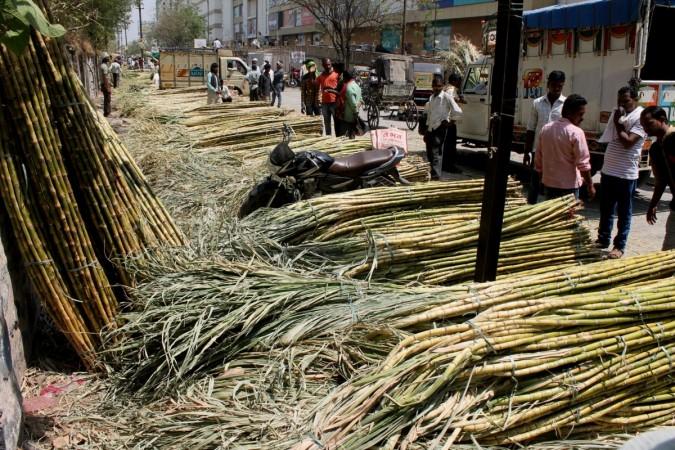
India is struggling to meet its sugar export target even as a domestic inventory build-up is increasing sugarcane farmers' distress.
The government has threatened action against exporters because the country may miss the export target of 5 million tonnes by a wide margin.
Sugarcane farmers in all major producing states are on the warpath over the price slump compounded by a year of bumper production, putting pressure on the Narendra Modi government heading into an election year.
The domestic inventory has 10 million tonnes of carryover stocks while an additional 31.5 million tonnes of current year's output is expected. A domestic consumption of 25.5 million tonnes is inadequate to reduce the stocks.
India is already facing international heat over what other sugar exporting nations call market-distorting subsidies causing a global price slump.
Australia and Brazil have approached the World Trade Organization against India over the sugar subsidies. India, however, contends the subsidies were a domestic relief measure for supporting farmers and is not affect the prices.
A news report says the government has warned mills to speed up sugar exports to achieve the target for the October 2018–September 2019 season.
Traders have managed to ship only 179,000 tonnes for the October-December quarter while 80,000 tonnes are at various ports awaiting the loading operation. This would mean the maximum possible exports for the quarter would be 260,000 tonnes, against the total 600,000 tonnes the exporters have contracted for, the report said.
The slow uptake has been causing concern for the authorities when the quarterly exports should be 1.25 million tonnes to meet the annual target of 5 million tonnes.
The government, which is under pressure from agrarian unrest over low prices for the produce, has advised sugar mills to meet the minimum indicative export quota (MIEQ). Officials have hinted that failure to meet MIEQ would be treated as a violation of the government directives inviting punitive action.
"In case, a sugar mill fails to achieve its quarterly sugar export target the equivalent quantity of unexported sugar during any specified quarter shall be deducted in three equal instalments from the quantity of sugar to be allocated to them of monthly stock holding for each month in the subsequent quarter," a circular from the Directorate of Sugar said last week.
"The Centre has taken a very serious view regarding noncompliance of the direction of the government by most of the sugar mills. For this purpose, sugar mills are required to set their quarterly export targets and intimate the same to the Department of Food and Public Distribution (DFPD) fulfilment of the quarterly export target by the sugar mills shall be monitored by DFPD," it said.
The millers' trade body Indian Sugar Mills Association has suggested making MIEQ mandatory with a penal provision. "We have repeatedly recommended the government to impose a penalty on sugar mills who fail to meet allocated quantity of export," Business Standard quoted Abinash Verma, director general, ISMA, as saying.
Some market sources allege the millers are reluctant to release stocks for exports fearing a delay on the government's part in disbursing the subsidy.

















